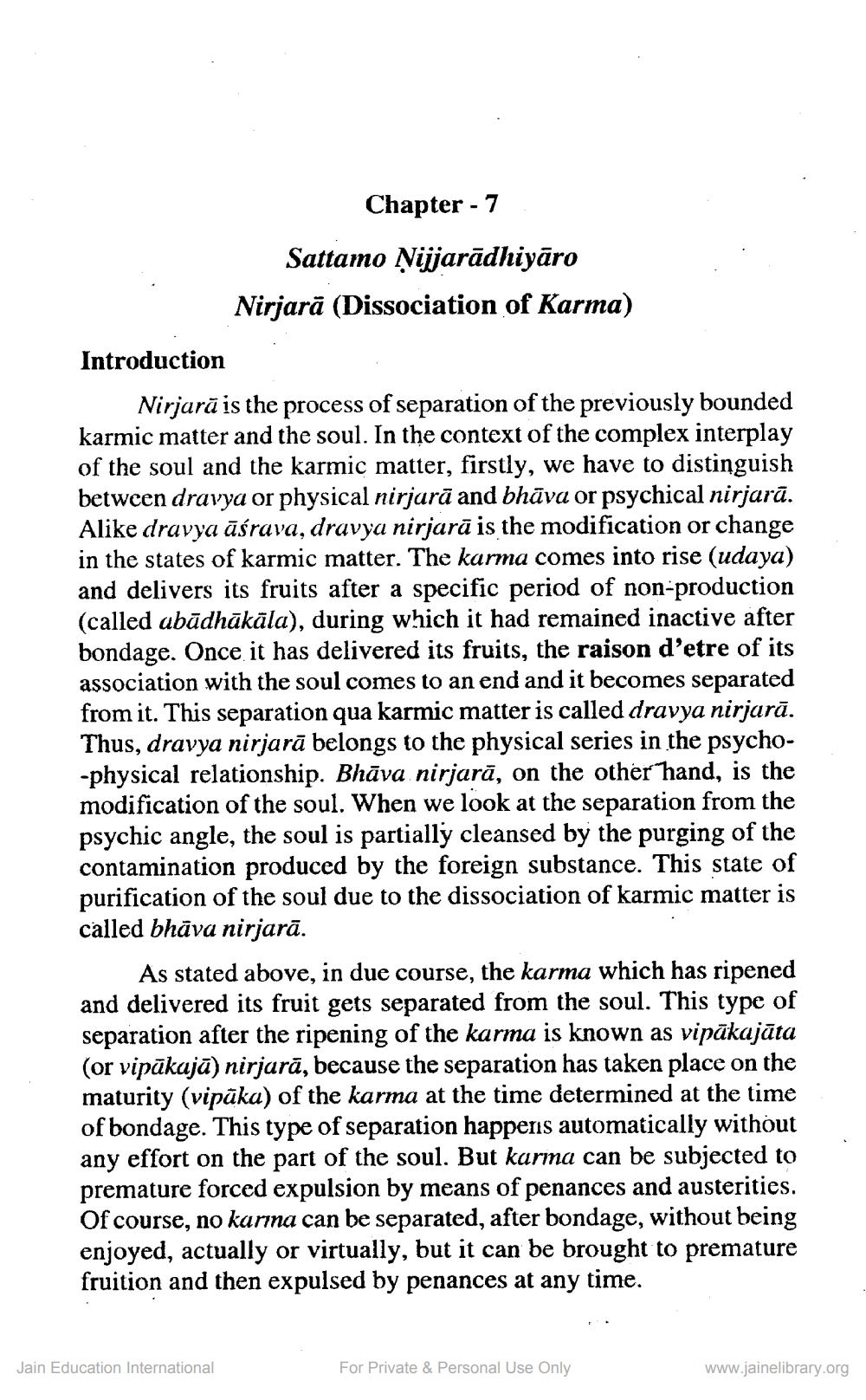________________
Chapter - 7
Sattamo Ņijjarādhiyāro
Nirjarā (Dissociation of Karma) Introduction
Nirjarā is the process of separation of the previously bounded karmic matter and the soul. In the context of the complex interplay of the soul and the karmic matter, firstly, we have to distinguish between dravya or physical nirjarā and bhāva or psychical nirjarā. Alike dravya āśrava, dravya nirjarā is the modification or change in the states of karmic matter. The karma comes into rise (udaya) and delivers its fruits after a specific period of non-production (called abūdhākāla), during which it had remained inactive after bondage. Once it has delivered its fruits, the raison d'etre of its association with the soul comes to an end and it becomes separated from it. This separation qua karmic matter is called dravya nirjarā. Thus, dravya nirjarā belongs to the physical series in the psycho-physical relationship. Bhāva nirjarā, on the other hand, is the modification of the soul. When we look at the separation from the psychic angle, the soul is partially cleansed by the purging of the contamination produced by the foreign substance. This state of purification of the soul due to the dissociation of karmic matter is called bhāva nirjarā.
As stated above, in due course, the karma which has ripened and delivered its fruit gets separated from the soul. This type of separation after the ripening of the karma is known as vipākajāta (or vipākajā) nirjurā, because the separation has taken place on the maturity (vipāka) of the karma at the time determined at the time of bondage. This type of separation happens automatically without any effort on the part of the soul. But karina can be subjected to premature forced expulsion by means of penances and austerities. Of course, no karma can be separated, after bondage, without being enjoyed, actually or virtually, but it can be brought to premature fruition and then expulsed by penances at any time.
Jain Education International
For Private & Personal Use Only
www.jainelibrary.org




